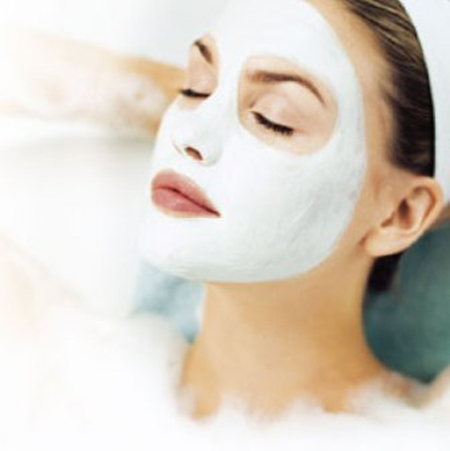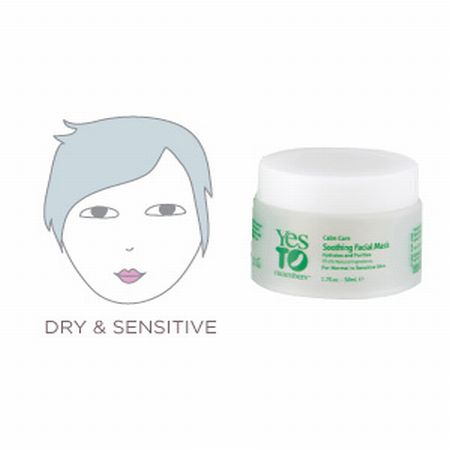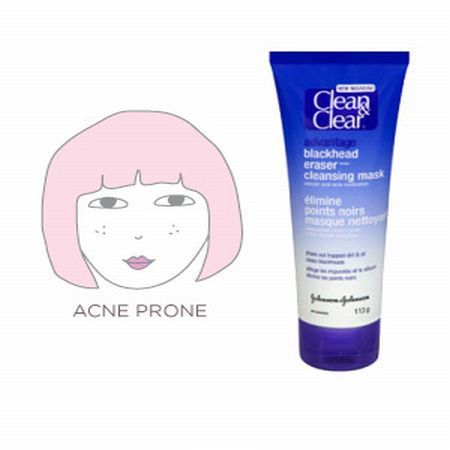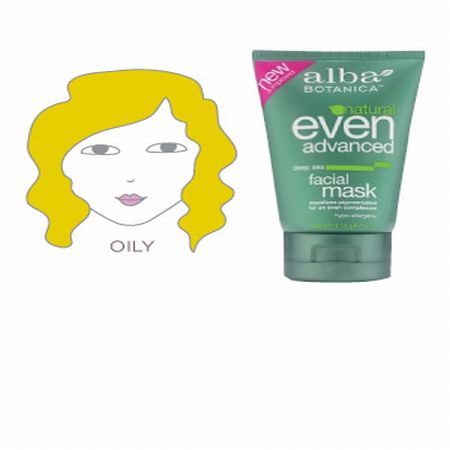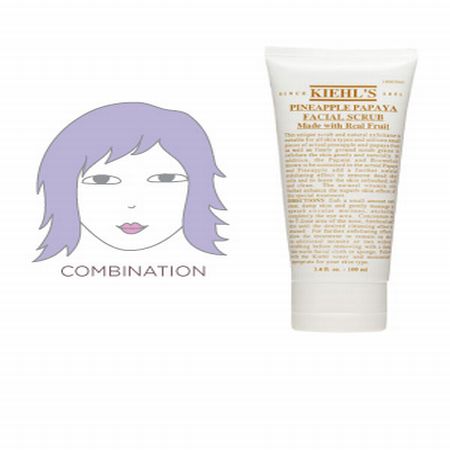Face masks are an easy way to get that glowing and youthful skin. They not only moisturize and deep cleanse the skin, but also soothe, energize and act as an effective stress reliever. Facemasks are like velvet curtains, which hide our face for a few moments and then unravel the glowing beauty beneath it. A mask must be an essential addition to every womanâs beauty regimen. If you want to maintain a flawless skin without investing in the high range parlor or spa products, then you must invest in a facemask. Here we give you a description of the facemasks that are suited to different skin types.
Regardless of the type of mask you are using, before applying it you must always steam your face over hot water or press hot wash cloth to your face, as heat tends to soften the debris present in the pores and cleanse the skin.
1. Dry and sensitive skin
Dry skin is more prone to wrinkles; hence, a proper skin care regime should be followed. People with dry or sensitive skin should apply a hydrating mask. Rather than an exfoliating or a clay mask, opt for a cream formula in order to replenish skin hydration. Dry skin can be treated with natural ingredients. A mixture of Greek yoghurt and a teaspoon of honey work great for dry and sensitive skin. Yoghurt is known for its probiotic properties and acts as a cleanser. The lactic acid present in the yoghurt soothes irritation, clarifies pores, removes dead skin, and softens the skin. Too much scrubbing should be avoided as you want to rejuvenate and protect skin rather than inflame or dry it.
2. Acne-prone skin
People tend to develop acne due to excess production of sebum or oil by their body. This oil clogs the facial pores, and as a result, bacteria develop in these pores, leading to the formation of pimples. People with such skin should use facial oil as a mask. The best way to fight sebum is through oil, which balances your sebaceous glands and helps in healing the spots. Drying out of face should be avoided as this leads to the production of more oil, and thus you end up with more clogged pores and finally the acne develops. To clean pores, you can use a clay or gel mask to which a little amount of oil can be added to double the impact.
3. Oily skin
Oily skin usually looks great when you move out for work and becomes greasy by the time you are back for the lunch. Oily skin contains a lot of sebum, which prevents the skin from drying out. Oily skin tends to attract dirt and dust comparatively more than the dry skin. For such people claymask is a perfect remedy. This mask exfoliates and removes the impurities from the skin. The clay mask needs to be followed by a hydrating mask in order to restore the moisture. A mixture of honey and aloe vera is a fantastic hydrating mask. This mixture can be left overnight. You must leave both the masks for about 10-15 minutes on your face as it requires time for the skin to absorb the ingredients.
4. Combination skin
A combination skin is caused when two or more different skin types occur together on the different parts of the face such as nose, forehead, cheeks, etc. For such skin type, each area should be treated individually with care. A clay mask is preferred for the oily part of the face and a hydrating mask for dry area. Yoghurt work wonders as a hydrating mask. Your skin tends to change depending on seasons, hence, the facemasks need to be changed accordingly. Beauties with combination skin should stick to enzyme mask, as this mask is gentle and serves as a best remedy for such kind of skin. Certain home remedies such as mashed up pineapple when mixed with yoghurt also works great. A mashed up papaya is also an excellent mask. Fruits such as pineapple and papaya contain certain enzymes that help in removing dead cells.


